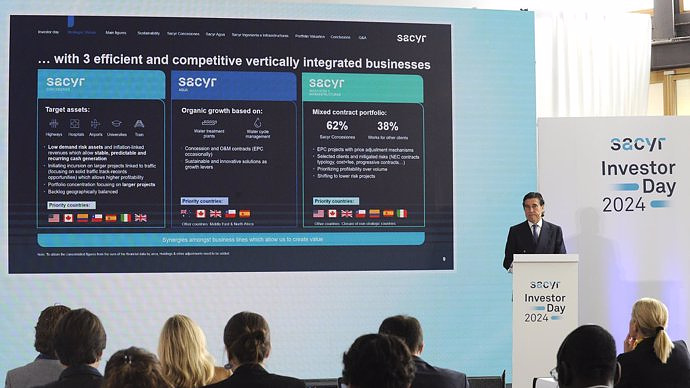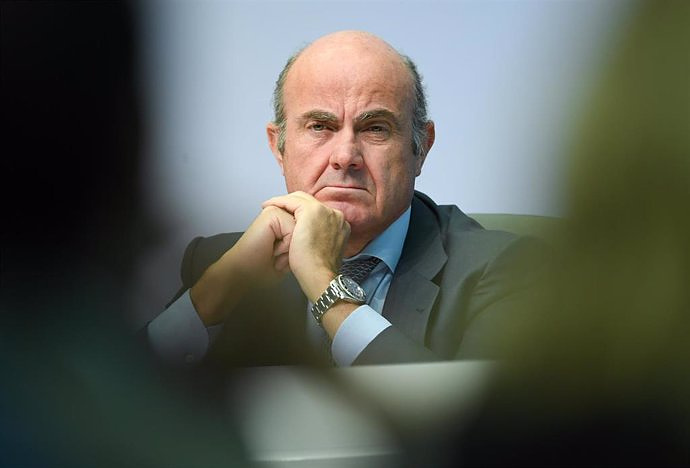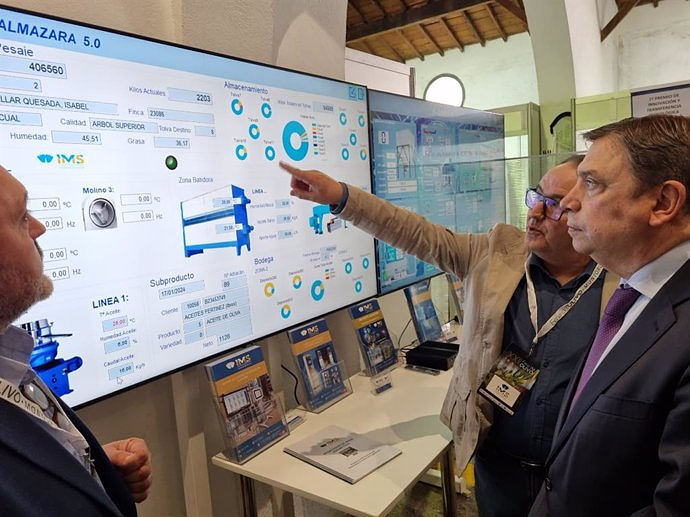The court postponed but did not resolve the request to remove González-Trevijano and Narváez
MADRID, 20 Dic. (EUROPA PRESS) -
The Constitutional Court (TC) last night paralyzed the parliamentary processing in the Senate of the reform that seeks to renew the TC itself, after an intense but cordial debate between its eleven magistrates that lasted more than 9 hours, thus answering the most urgent of all issues that he had on the table, although he left some fringes that must be resolved in the course of the procedure, including the request of United We Can (UP) and PSOE to remove two magistrates.
UP first and PSOE later demanded in separate writings to remove the president of the TC, Pedro González-Trevijano, and Antonio Narváez, alleging that they have a "direct interest" in the matter because they are the two magistrates who would be replaced by the two candidates proposed by the Government -- the former Minister of Justice Juan Carlos Campo and the former high office of Moncloa Laura Díez -- in the event that the reform goes ahead.
According to legal sources consulted by Europa Press, when the time came to address the challenges made, González-Trevijano and Narváez refused to voluntarily withdraw, which gave rise to a debate where the conservative majority finally prevailed --6 magistrates against 5-- deciding that it was not the right procedural moment to analyze whether they should be left out of court.
The reason given by the conservative bloc is that it was requested by the UP and the PSOE, who only minutes before had been granted the status of intervening party, a procedural position that conditions their performance to that of the main actor, in this case the Congress of the Deputies, who was offered to appear as a defendant last night, something that he has not done yet.
The sources explain that, in principle, UP and PSOE will not be able to maintain the challenges against González-Trevijano and Narváez without Congress supporting said request, although at the same time they point out that it is not a peaceful issue, so at that point they predict a legal debate about it.
If the request of 'purples' and socialists were finally given free rein, a separate procedure would be opened within the constitutional procedure to obtain the opinion of all the magistrates and, ultimately, vote on the continuity of the two challenged.
If González-Trevijano and Narváez were removed, the balance of forces would change, since the PP's appeal for amparo would remain in the hands of a court made up of five progressive and four conservative magistrates.
In this context, some voices from the guarantee court raise why they want to remove only González-Trevijano and Narváez from the court that will adopt the final decision, when they are in the same interim situation as two other magistrates: the vice president of the TC, Juan Antonio Xiol, and Santiago Martínez-Vares.
These four magistrates saw their mandate expire on June 12. And, since then, they await their replacement by the Government and the General Council of the Judiciary (CGPJ), since they are the two bodies that the Constitution mandates to renew this third of magistrates.
Precisely, the halted reform had the objective of clearing the obstacles so that Campo and Díez, who were appointed on November 29 by the Executive, can take office as magistrates of the TC without having to wait for the two CGPJ applicants.
And this because the negotiations within the CGPJ, which formally began last July, when the Cortes Generales returned the power to name its two candidates to the TC, ran aground on December 2 due to the tacit veto of the conservative bloc to the candidate for the progressive wing: the magistrates of the Supreme Court (TS) José Manuel Bandrés.
In addition, the sources emphasize that against the TC's decision to accept the very precautionary measures claimed by the PP in its challenge, there is still a last resort, that of appeal, which Congress may file when it consumes its appearance in the case in the following five days. .
At the same time, the sources recall that the Constitutional Court opened an independent path last night to give time to the accepted parties --PP, PSOE, UP and Congress (plus the Prosecutor's Office)-- to make the allegations they deem appropriate regarding the very precautionary measures. They will have ten days to do so.
However, the aforementioned sources emphasize that neither the appeal nor the separate piece of precautionary measures will have practical effects, once the debate and voting in the Senate have stopped, and passed next Thursday, when the House was expected to Alta will approve the suspended reform. In this scenario, revoking the urgent stoppage would be "nonsense", they say.
Likewise, the sources consulted point out that it is unlikely that any of these issues -- appeal and precautionary measures -- would be resolved before Reyes. For the substantive decision on the 'popular' resource, there is no rush either, they anticipate.
However, the Constitutional Court hopes to return to its times after a situation, such as the one experienced yesterday, which the sources describe as exceptional but which assure that within the court they lived with "cordiality". In this sense, they maintain that it was an "intense" debate but not harsh. The positions of both blocks were clear from the beginning but "everyone was listened to with respect", they affirm.

 Exploring Cardano: Inner Workings and Advantages of this Cryptocurrency
Exploring Cardano: Inner Workings and Advantages of this Cryptocurrency Seville.- Economy.- Innova.- STSA inaugurates its new painting and sealing hangar in San Pablo, for 18 million
Seville.- Economy.- Innova.- STSA inaugurates its new painting and sealing hangar in San Pablo, for 18 million Innova.- More than 300 volunteers join the Andalucía Compromiso Digital network in one month to facilitate access to ICT
Innova.- More than 300 volunteers join the Andalucía Compromiso Digital network in one month to facilitate access to ICT Innova.-AMP.- Ayesa acquires 51% of Sadiel, which will create new technological engineering products and expand markets
Innova.-AMP.- Ayesa acquires 51% of Sadiel, which will create new technological engineering products and expand markets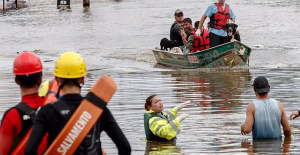 Death toll rises to 107 from floods caused by heavy rains in southern Brazil
Death toll rises to 107 from floods caused by heavy rains in southern Brazil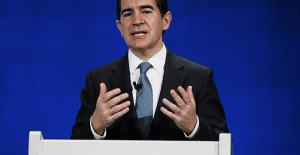 BBVA is willing to assume the possible reputational risk if the takeover bid for Sabadell does not go ahead
BBVA is willing to assume the possible reputational risk if the takeover bid for Sabadell does not go ahead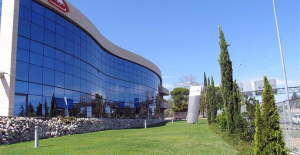 Takeda earns 54% less at the end of its year and announces a restructuring plan
Takeda earns 54% less at the end of its year and announces a restructuring plan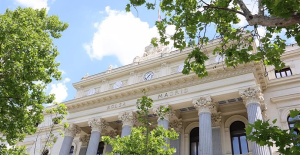 The Ibex 35 stands out from Europe and falls 0.92% affected by the collapse of BBVA after the takeover bid for Sabadell
The Ibex 35 stands out from Europe and falls 0.92% affected by the collapse of BBVA after the takeover bid for Sabadell How Blockchain in being used to shape the future
How Blockchain in being used to shape the future Not just BTC and ETH: Here Are Some More Interesting Coins Worth Focusing on
Not just BTC and ETH: Here Are Some More Interesting Coins Worth Focusing on Expociència expects to receive more than 4,000 visitors in the Science Park of the University of Valencia
Expociència expects to receive more than 4,000 visitors in the Science Park of the University of Valencia They develop devices for the precise diagnosis of cancer patients
They develop devices for the precise diagnosis of cancer patients UMH researchers are working on a high-quality apricot crop that requires less irrigation water
UMH researchers are working on a high-quality apricot crop that requires less irrigation water The UPV develops an application to improve the quality of life of patients with glioblastoma
The UPV develops an application to improve the quality of life of patients with glioblastoma A million people demonstrate in France against Macron's pension reform
A million people demonstrate in France against Macron's pension reform Russia launches several missiles against "critical infrastructure" in the city of Zaporizhia
Russia launches several missiles against "critical infrastructure" in the city of Zaporizhia A "procession" remembers the dead of the Calabria shipwreck as bodies continue to wash up on the shore
A "procession" remembers the dead of the Calabria shipwreck as bodies continue to wash up on the shore Prison sentences handed down for three prominent Hong Kong pro-democracy activists
Prison sentences handed down for three prominent Hong Kong pro-democracy activists ETH continues to leave trading platforms, Ethereum balance on exchanges lowest in 3 years
ETH continues to leave trading platforms, Ethereum balance on exchanges lowest in 3 years Investors invest $450 million in Consensys, Ethereum incubator now valued at $7 billion
Investors invest $450 million in Consensys, Ethereum incubator now valued at $7 billion Alchemy Integrates Ethereum L2 Product Starknet to Enhance Web3 Scalability at a Price 100x Lower Than L1 Fees
Alchemy Integrates Ethereum L2 Product Starknet to Enhance Web3 Scalability at a Price 100x Lower Than L1 Fees Mining Report: Bitcoin's Electricity Consumption Declines by 25% in Q1 2022
Mining Report: Bitcoin's Electricity Consumption Declines by 25% in Q1 2022 Oil-to-Bitcoin Mining Firm Crusoe Energy Systems Raised $505 Million
Oil-to-Bitcoin Mining Firm Crusoe Energy Systems Raised $505 Million Microbt reveals the latest Bitcoin mining rigs -- Machines produce up to 126 TH/s with custom 5nm chip design
Microbt reveals the latest Bitcoin mining rigs -- Machines produce up to 126 TH/s with custom 5nm chip design Bitcoin's Mining Difficulty Hits a Lifetime High, With More Than 90% of BTC Supply Issued
Bitcoin's Mining Difficulty Hits a Lifetime High, With More Than 90% of BTC Supply Issued The Biggest Movers are Near, EOS, and RUNE during Friday's Selloff
The Biggest Movers are Near, EOS, and RUNE during Friday's Selloff Global Markets Spooked by a Hawkish Fed and Covid, Stocks and Crypto Gain After Musk Buys Twitter
Global Markets Spooked by a Hawkish Fed and Covid, Stocks and Crypto Gain After Musk Buys Twitter Bitso to offset carbon emissions from the Trading Platform's ERC20, ETH, and BTC Transactions
Bitso to offset carbon emissions from the Trading Platform's ERC20, ETH, and BTC Transactions Draftkings Announces 2022 College Hoops NFT Selection for March Madness
Draftkings Announces 2022 College Hoops NFT Selection for March Madness




